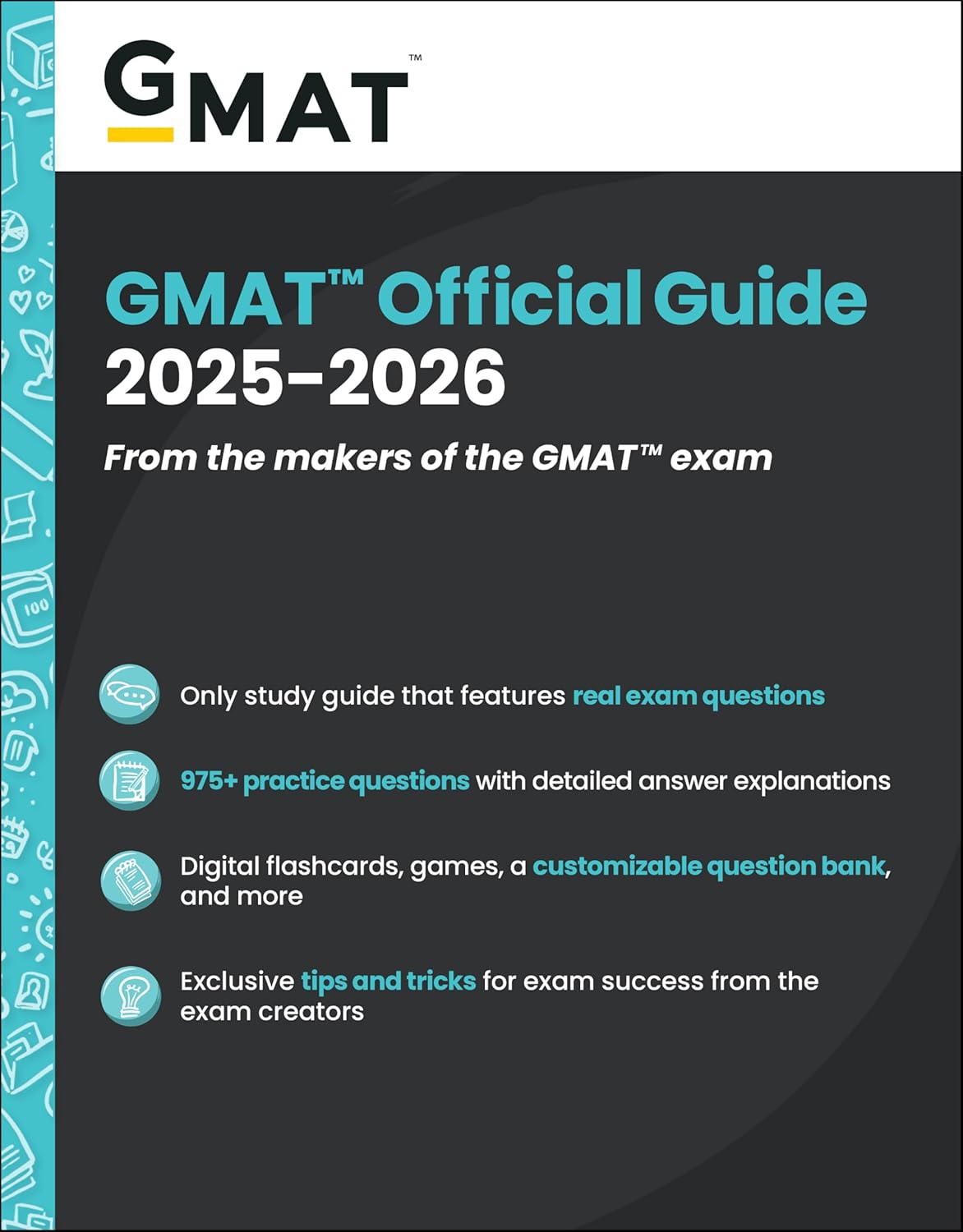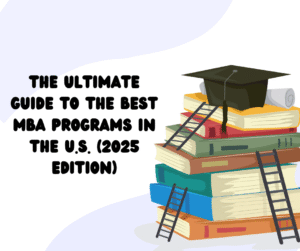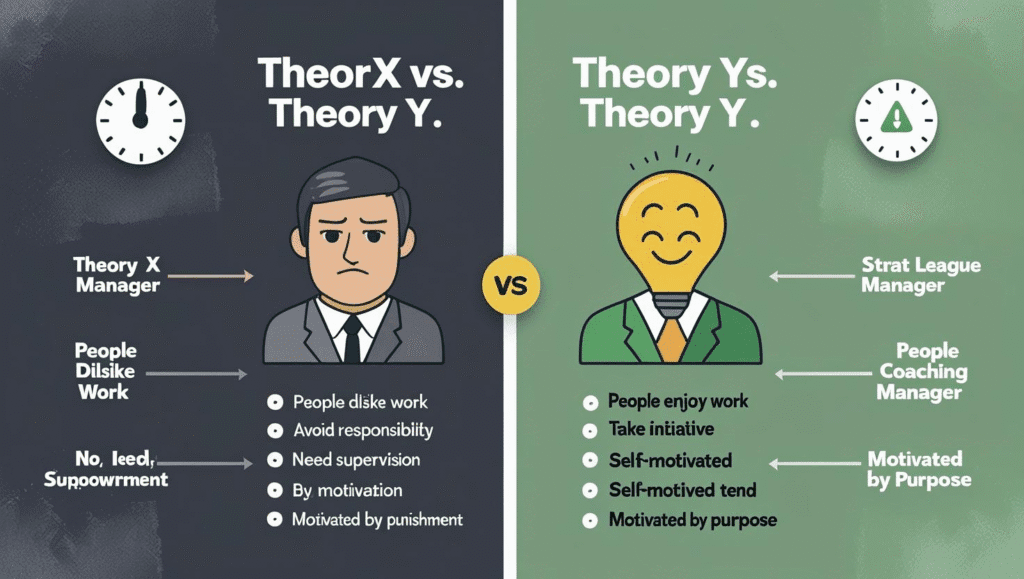The Ultimate Guide to the Best MBA Programs in the U.S. (2025 Edition)
Embarking on the journey to get a Master of Business Administration (MBA) is one of the most significant career decisions you can make. It’s a massive investment of time, money, and effort, but the payoff can be transformative, unlocking leadership roles, higher salaries, and a world-class professional network. The first and most crucial step? Choosing the right program.
With hundreds of business schools across the United States, each with its own culture, strengths, and curriculum, the choice can feel overwhelming. This guide is designed to cut through the noise. We’ll dive deep into the elite programs consistently ranked at the top, explore what makes them special, and provide the insights you need to find the perfect fit for your ambitions.
What are the Best MBA Programs?
The best MBA programs are consistently found at institutions like the Stanford Graduate School of Business (GSB), The Wharton School at the University of Pennsylvania, Harvard Business School (HBS), the University of Chicago Booth School of Business, and Northwestern’s Kellogg School of Management. These schools, often referred to as the “M7” schools, are renowned for their rigorous academics, influential faculty, powerful alumni networks, and outstanding career outcomes for graduates.
Decoding the Elite: A Look at the Top-Tier Business Schools
While rankings fluctuate slightly year to year, a core group of schools consistently dominates the landscape. We’ll explore the DNA of these institutions, giving you a feel for their culture and what they offer beyond the prestige.
1. Stanford Graduate School of Business (GSB)
Why It’s a Top Program: The Epicenter of Innovation
Located in the heart of Silicon Valley, Stanford GSB is synonymous with innovation, entrepreneurship, and technology. Its motto, “Change lives. Change organizations. Change the world,” is deeply embedded in its culture. The school’s proximity to venture capital firms and tech giants provides unparalleled opportunities for students interested in building or joining disruptive companies. GSB is known for its small, intimate class size, fostering a tight-knit and collaborative community.
Key Strengths & Specializations:
- Entrepreneurship & Venture Capital: GSB is the undisputed leader for aspiring founders and investors. Courses like “Startup Garage” provide hands-on experience in launching a venture.
- Technology Management: The curriculum is deeply integrated with the tech industry, covering everything from product management to scaling tech startups.
- Social Impact: With its Center for Social Innovation, GSB has a strong focus on using business principles to solve global challenges.
What It Takes to Get In:
Stanford has the lowest acceptance rate of any major business school (typically 6-7%). They look for individuals with a clear vision, demonstrated leadership, and intellectual vitality. The famous essay question, “What matters most to you, and why?” requires deep introspection and authenticity.
| Metric | Statistic (Approximate) |
|---|---|
| Average GMAT Score | 738 |
| Average GPA | 3.78 |
| Acceptance Rate | ~6% |
| Post-MBA Average Base Salary | $175,000+ |
2. The Wharton School (University of Pennsylvania)
Why It’s a Top Program: The Quantitative Powerhouse
Wharton is arguably the best-known name in business education globally, particularly for finance. It boasts a massive alumni network (over 100,000 strong) and a reputation for rigorous, data-driven analysis. While its finance prowess is legendary, Wharton is a comprehensive powerhouse with top-tier programs across marketing, real estate, healthcare management, and more. Its large class size allows for an incredible diversity of coursework and student backgrounds.
Key Strengths & Specializations:
- Finance: Unmatched in its depth and breadth, covering private equity, investment banking, asset management, and fintech.
- Analytics: Wharton was a pioneer in using data to drive business decisions and continues to lead in this critical area.
- Marketing & Operations: Strong departments that leverage the school’s quantitative focus to create data-driven leaders in these fields.
What It Takes to Get In:
Wharton seeks analytical, data-driven candidates who can handle its quantitative rigor. Their team-based discussion interview format is unique and tests your ability to collaborate and contribute effectively in a group setting.
| Metric | Statistic (Approximate) |
|---|---|
| Average GMAT Score | 733 |
| Average GPA | 3.6 |
| Acceptance Rate | ~14% |
| Post-MBA Average Base Salary | $175,000 |
“An investment in knowledge pays the best interest.” – Benjamin Franklin, Founder of the University of Pennsylvania
Mastering the GMAT: Your First Hurdle
A high GMAT (or GRE) score is a critical component of your application. It’s a signal to admissions committees that you have the quantitative, verbal, and analytical skills to succeed in a demanding academic environment. Don’t leave this to chance. Investing in high-quality preparation materials is essential. Here are some of the most trusted resources available on Amazon to help you conquer the exam.

GMAT Official Guide 2023-2024 Bundle
The essential trio from the makers of the GMAT. Includes the main guide, plus verbal and quantitative reviews with hundreds of real past exam questions.
View on Amazon
Manhattan Prep GMAT All the Quant
If quant is your weak spot, this is your bible. Manhattan Prep is famous for breaking down complex math concepts into understandable strategies.
View on Amazon
Kaplan GMAT Prep Plus 2024
A comprehensive resource that includes 6 practice tests, proven strategies, and online video lessons to guide your study plan from start to finish.
View on Amazon3. Harvard Business School (HBS)
Why It’s a Top Program: Forging World Leaders
HBS is arguably the most prestigious MBA program in the world. Its mission is to “educate leaders who make a difference in the world.” The school is famous for pioneering the case method, a teaching style where students step into the shoes of a protagonist in a real-world business scenario and debate potential solutions. This approach hones decision-making skills under pressure and uncertainty like no other. With a massive endowment and an unparalleled global brand, HBS opens doors that few other institutions can.
Key Strengths & Specializations:
- Leadership & General Management: The entire curriculum is designed to mold students into high-impact leaders capable of running complex global organizations.
- The Case Method: Provides an immersive, practical learning experience that develops critical thinking and communication skills.
- Global Brand & Network: The Harvard name carries immense weight worldwide, and its alumni network is a powerful, lifelong asset.
What It Takes to Get In:
HBS looks for “habitual leaders”—individuals who have a track record of making an impact in every organization they’ve been a part of. The application essay is open-ended, asking what more you’d like the admissions board to know. This is your chance to showcase your character, judgment, and leadership potential.
| Metric | Statistic (Approximate) |
|---|---|
| Median GMAT Score | 740 |
| Median GPA | 3.7 |
| Acceptance Rate | ~10% |
| Median Post-MBA Base Salary | $175,000 |
4. University of Chicago Booth School of Business
Why It’s a Top Program: The Apex of Academic Freedom
Chicago Booth is an intellectual powerhouse, famous for its “Chicago Approach” to business education. This philosophy emphasizes fundamental disciplines like economics, statistics, and behavioral science to build a framework for analysis that can be applied to any business problem. Booth offers the most flexible curriculum of any top school, allowing students to design their own path with only one required course. This attracts independent, intellectually curious students who are comfortable with ambiguity and want to dive deep into their areas of interest.
Key Strengths & Specializations:
- Flexible Curriculum: Unmatched freedom to tailor your MBA experience to your specific career goals.
- Analytical Rigor: A culture that prizes data, evidence, and challenging assumptions. Home to numerous Nobel laureates in economics.
- Finance & Economics: A dominant force in quantitative finance, investment management, and economic theory.
What It Takes to Get In:
Booth values intellectual curiosity and an analytical mindset. Their unique application essay asks you to respond creatively to a visual prompt, testing your ability to think differently and connect disparate ideas. They want to see how you think, not just what you’ve achieved.
| Metric | Statistic (Approximate) |
|---|---|
| Average GMAT Score | 728 |
| Average GPA | 3.55 |
| Acceptance Rate | ~22% |
| Median Post-MBA Base Salary | $175,000 |
Crafting Your Story: The Application Essays
Your essays are where you transform from a set of statistics (GMAT, GPA, years of experience) into a compelling, three-dimensional person. This is your opportunity to share your motivations, your vision for the future, and why a specific program is the essential next step in your journey. Learning to write persuasively and authentically is a skill that will serve you well beyond the application process.

65 Successful Harvard Business School Application Essays
An invaluable look at what works. Analyze real essays from accepted HBS students to understand the art of storytelling and personal branding in your application.
View on Amazon
On Writing Well: The Classic Guide to Writing Nonfiction
This isn’t an admissions book; it’s a masterpiece on clear, effective writing. Applying its principles of simplicity and clarity will make your essays stand out.
View on AmazonFrequently Asked Questions (FAQ)
What is the difference between the GMAT and the GRE?
Both are standardized tests accepted by most business schools. The GMAT (Graduate Management Admission Test) was specifically designed for business schools and has a unique Integrated Reasoning section. The GRE (Graduate Record Examinations) is a more general graduate school test. The GMAT’s quantitative section is often considered more challenging and analytical, while the GRE’s verbal section has a greater emphasis on vocabulary. Choose the test that plays to your strengths.
How much work experience do I need for a top MBA program?
The average amount of post-college work experience at top programs is typically 4-5 years. This is a guideline, not a rule. Admissions committees are more interested in the quality and impact of your experience than the sheer number of years. They want to see a track record of professional growth, leadership, and accomplishment.
Is an MBA worth the cost?
For most graduates of top-tier programs, the answer is a resounding yes. The return on investment (ROI) comes from several areas: a significant increase in post-MBA salary, access to a powerful and lifelong network, career switching opportunities, and the development of advanced leadership and management skills. However, it’s crucial to calculate the total cost (tuition + living expenses + opportunity cost of lost salary) and be clear about your career goals to ensure it’s the right decision for you.
Conclusion: Your Journey Starts Now
Choosing an MBA program is a deeply personal decision. The “best” school is not just about rankings; it’s about finding the culture, curriculum, and community where you will thrive. Stanford might be perfect for the aspiring tech founder, while Wharton is ideal for the future private equity partner. HBS and Kellogg excel at molding general managers and leaders.
Use this guide as a starting point. Dive deeper into the schools that resonate with you, connect with current students and alumni, and attend virtual information sessions. The application process is a marathon, not a sprint. It requires self-reflection, strategic planning, and meticulous execution. Start preparing early, invest in the right resources, and focus on telling your unique story.
Your future as a leader starts with this single, pivotal choice. Good luck!


